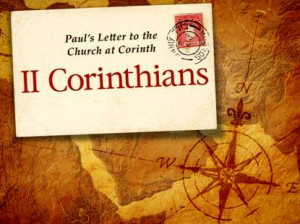The Old Testament and Inspiration
 I recently read an article authored by OT scholar and professor Peter Enns in which he discussed the compilation process of the OT (link to article here). This has been of particular interest to me as of late due to my desire to understand the nature of Scriptural inspiration. I believe that understanding the process of inspiration is concomitant with how we understand the very mind and heart of God, a quest which presumably all Christians have embarked upon (cf. Jn 17:3).
I recently read an article authored by OT scholar and professor Peter Enns in which he discussed the compilation process of the OT (link to article here). This has been of particular interest to me as of late due to my desire to understand the nature of Scriptural inspiration. I believe that understanding the process of inspiration is concomitant with how we understand the very mind and heart of God, a quest which presumably all Christians have embarked upon (cf. Jn 17:3).
Question Everything
 1 Thessalonians 5:21
1 Thessalonians 5:21
“but test everything; hold fast what is good.”
This is the 11th week of Seminary. The academic challenge I am getting here is very restorative to my faith. There are two classes in particular that are changing the way I view life: Introduction to Theological Research and Hermeneutics (interpretation of the Bible). These are the two first classes for any seminary student.
Continue reading →
Methods and Aims
 “And there is this difference between the matter of aims and the matter of methods…”- Gk Chesterton, Heretics
“And there is this difference between the matter of aims and the matter of methods…”- Gk Chesterton, Heretics
I recall a childhood story about a girl from India. She was arranged to marry someone from birth. The girl grew up and fell in love with another man and when the time came for her to marry she told her family no. “But this is how it has always been. You marry the man that has been decided.” But the girl, now woman said “But why does it have to be how it has always been? I will still marry.” This is very much the story of a person trying to change the methods while preserving the ideal. In one sense our task as Christians in judging the aims and means is very easy. For most of us the aim is quite easy to judge. A confusion of methodologies and ideologies is a constant source of problem across many different disciplines and institutions. It is very much the story of a person attempting to break tradition.
2 Corinthians – Section 2
 N.T. Wright’s study guide continues with the text of 2 Cornithians 2:5-3:18. This sectioning off of Scripture is teaching me a highly valuable lesson: consider the more comprehensive thought streams in the text. To chop up the bible into exact chapters is becoming less and less helpful to me. I really appreciate, therefore, the initiative by the Biblica people in creating the Community Bible Experience program. The second study from N.T. Wright is entitled “The Letter and the Spirit”. Here are my thoughts from the study and the text.
N.T. Wright’s study guide continues with the text of 2 Cornithians 2:5-3:18. This sectioning off of Scripture is teaching me a highly valuable lesson: consider the more comprehensive thought streams in the text. To chop up the bible into exact chapters is becoming less and less helpful to me. I really appreciate, therefore, the initiative by the Biblica people in creating the Community Bible Experience program. The second study from N.T. Wright is entitled “The Letter and the Spirit”. Here are my thoughts from the study and the text.
Why I will not try to obey the OT Law
 So you are not even going to try to obey God’s Law? Nope. Not even a little? No. Aren’t you afraid of backsliding? No. Don’t you fear God? Not anymore, no. Aren’t you afraid of drifting away from God? No. Don’t you miss fellowship with God’s people? Not really, no. Are you a Christian? Yes, I consider myself a Christ-follower. Don’t you want a faith community? Someday yes, but not now. Why aren’t you going to even try to obey God? Well let me explain some things I’ve learned as a Christian outsider.
So you are not even going to try to obey God’s Law? Nope. Not even a little? No. Aren’t you afraid of backsliding? No. Don’t you fear God? Not anymore, no. Aren’t you afraid of drifting away from God? No. Don’t you miss fellowship with God’s people? Not really, no. Are you a Christian? Yes, I consider myself a Christ-follower. Don’t you want a faith community? Someday yes, but not now. Why aren’t you going to even try to obey God? Well let me explain some things I’ve learned as a Christian outsider.
2 Corinthians – Section 1
 N.T. Wright’s study guide is remarkably easy to understand and yet opens doors of deep thought. Section 1 is entitled “The God of all Comfort”. Clearly the first major theme Paul introduces is that of comfort. God is the God of all comfort. I’ve been thinking about that one word the past couple weeks–comfort. Comfort means “a state of physical ease and freedom from pain or constraint; the easing or alleviation of a person’s feelings of grief or distress.” Here are my thoughts on this first study guide and on 2 Corinthians 1:1-2:4.
N.T. Wright’s study guide is remarkably easy to understand and yet opens doors of deep thought. Section 1 is entitled “The God of all Comfort”. Clearly the first major theme Paul introduces is that of comfort. God is the God of all comfort. I’ve been thinking about that one word the past couple weeks–comfort. Comfort means “a state of physical ease and freedom from pain or constraint; the easing or alleviation of a person’s feelings of grief or distress.” Here are my thoughts on this first study guide and on 2 Corinthians 1:1-2:4.
2 Corinthians – Suggestions from Wright
 Bible study. Questions. These things surprisingly still invoke a mild fight-or-flight response in me. Can I trust the study guide? What ideology are these questions imposing on me? It has taken me more than three years to embark on an actual bible study with an official study guide. Yes I have been doing my own bible reading and did a personal study of the books of Job, Hebrews, Romans and Galatians these past three years. But these were just my own loose study. I was able to participate in a few bible study groups at our new local church, such as their “Be Armed!” study. Those were helpful and had study guides, but were disconnected from the direct text of the bible.
Bible study. Questions. These things surprisingly still invoke a mild fight-or-flight response in me. Can I trust the study guide? What ideology are these questions imposing on me? It has taken me more than three years to embark on an actual bible study with an official study guide. Yes I have been doing my own bible reading and did a personal study of the books of Job, Hebrews, Romans and Galatians these past three years. But these were just my own loose study. I was able to participate in a few bible study groups at our new local church, such as their “Be Armed!” study. Those were helpful and had study guides, but were disconnected from the direct text of the bible.
I have found that my own, no-pressure bible reading and the group topical bible studies are very enjoyable, challenging and helpful. Those approaches to bible study gave me time to process my own belief system, rather than dictate a belief system to me. But now I want more; I want to get closer to the bible text and enrich my personal faith fabric. So I’ve decided to learn from and trust N.T. Wright and his study guide on 2 Corinthians. So far this has been a good decision.
2 Corinthians Study – Introduction
 One of the freedoms I have been enjoying is the new-found freedom to work out my personal belief system as a bible learner. I started by believing only one thing: grace. My personal bible study continues with 2 Corinthians, the next book on my study journey. Perhaps you would share this study with me? Your input would be much appreciated. I think together we can reach much deeper and more accurate pictures of what God is communicating through the bible as we check each other’s blind spots, share our stories and explore the Holy Scriptures.
One of the freedoms I have been enjoying is the new-found freedom to work out my personal belief system as a bible learner. I started by believing only one thing: grace. My personal bible study continues with 2 Corinthians, the next book on my study journey. Perhaps you would share this study with me? Your input would be much appreciated. I think together we can reach much deeper and more accurate pictures of what God is communicating through the bible as we check each other’s blind spots, share our stories and explore the Holy Scriptures.
Jesus is the Door
 Today I woke up with John 10 on my mind, and immediately I began thinking of my comments about being baptized by Pastor Wayne. When I re-read the comments on my book narratives, I realized there is something I need to expound on that I only touched on in my first book. In fact, this morning I feel strongly that I should make a public apology to all Christian pastors. In the past three years, I’ve met 9 ordained Christian pastors outside of ubf from various churches in person and spoken with them at length: Bryan, Wayne, Steve, Doug, Bill, Greg, George, John and David. I’ve also interacted with at least a dozen other pastors online in various forms. I feel compelled this morning to share some of what I’ve learned.
Today I woke up with John 10 on my mind, and immediately I began thinking of my comments about being baptized by Pastor Wayne. When I re-read the comments on my book narratives, I realized there is something I need to expound on that I only touched on in my first book. In fact, this morning I feel strongly that I should make a public apology to all Christian pastors. In the past three years, I’ve met 9 ordained Christian pastors outside of ubf from various churches in person and spoken with them at length: Bryan, Wayne, Steve, Doug, Bill, Greg, George, John and David. I’ve also interacted with at least a dozen other pastors online in various forms. I feel compelled this morning to share some of what I’ve learned.
A Biblical Response to the UBF Definition of Church
 The new UBF history website created in 2013 attempts to define “church” on this page. After that, it tries to build a case, based on this definition, for UBF’s chapter structure. The definition of church used, however, is simplistic at best, and biblically and church-historically inaccurate at worst. In other words, there are many ecclesiological problems with the definition of church (The branch of theology that teaches what scripture has to say about the church is called “Ecclesiology”).
The new UBF history website created in 2013 attempts to define “church” on this page. After that, it tries to build a case, based on this definition, for UBF’s chapter structure. The definition of church used, however, is simplistic at best, and biblically and church-historically inaccurate at worst. In other words, there are many ecclesiological problems with the definition of church (The branch of theology that teaches what scripture has to say about the church is called “Ecclesiology”).
First, notice that sections of the italicized definition are pasted below and numbered, followed by questions/comments that can help expose the underlined errors therein and (perhaps incompletely) point to some more biblical perspectives.
Second, a much better definition of the church (by no means the only one), is provided. I adapted this definition from a class on Ecclesiology at Reformed Baptist Seminary with Greg Nichols. I loved his class because he drew on no other sources than the scriptures (as will be evident).
Third, I will suggest positive steps for UBF’s future, pointing out that UBF shouldn’t identify itself as a local church (in form) while it almost exclusively operates as a para-church (in function). Based on concepts from 9Marks, I suggest UBF either fully commit to para-church life, or reform into an association of local churches.

Last 30 Comments